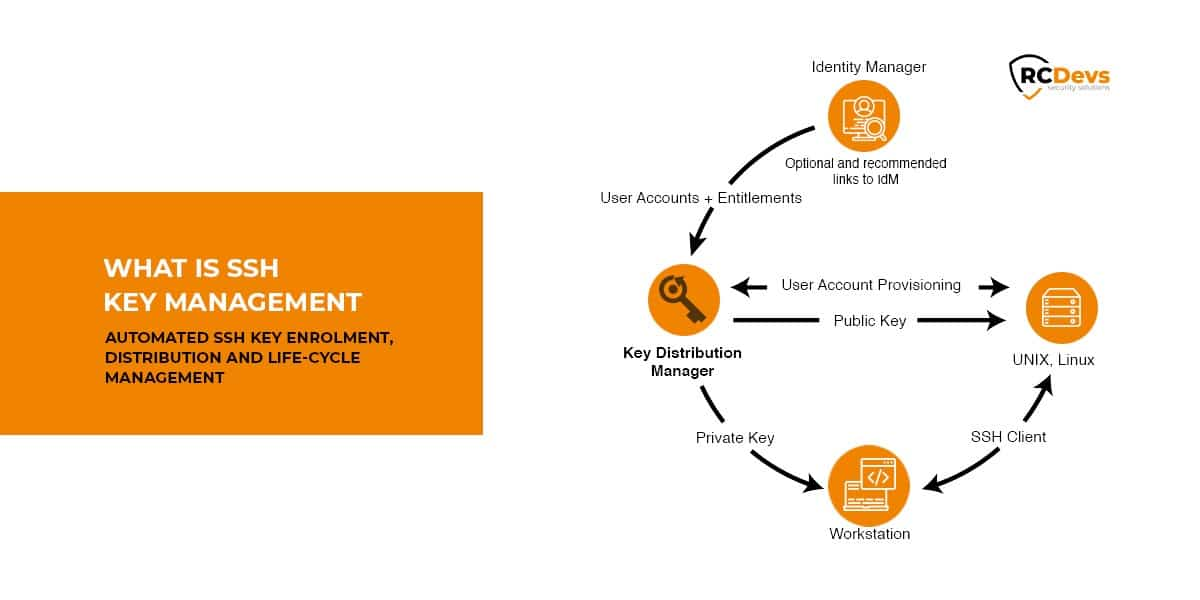In today's digital age, managing SSH keys for remote IoT devices is crucial for ensuring secure communication. With the rise of connected devices, proper SSH key management has become a cornerstone of cybersecurity practices. Organizations that prioritize security must implement robust systems to protect their infrastructure from unauthorized access.
As the Internet of Things (IoT) continues to expand, the number of connected devices grows exponentially. This growth introduces new challenges in maintaining secure connections. RemoteIoT SSH key management plays a pivotal role in addressing these challenges by providing secure authentication mechanisms for remote devices.
This article delves into the best practices for managing SSH keys in remote IoT environments, offering insights into tools, strategies, and protocols to enhance security. Whether you're a cybersecurity professional or an IT enthusiast, this guide will equip you with the knowledge needed to safeguard your IoT infrastructure.
Read also:Unveiling The Charm Of Dog With Rolls A Tailwagging Delight
Table of Contents
- Introduction to RemoteIoT SSH Key Management
- The Importance of SSH Key Management in IoT
- Understanding SSH Keys and Their Role
- Common Challenges in RemoteIoT SSH Key Management
- Best Practices for Managing SSH Keys in IoT
- Top Tools for RemoteIoT SSH Key Management
- Secure Protocols for IoT SSH Key Management
- Automation in SSH Key Management
- Enhancing Security with Advanced Techniques
- The Future of RemoteIoT SSH Key Management
Introduction to RemoteIoT SSH Key Management
What is SSH Key Management?
SSH key management refers to the process of generating, distributing, storing, and revoking SSH keys used for secure communication between devices. In the context of IoT, this involves managing keys across numerous remote devices that may operate in diverse environments.
SSH keys serve as cryptographic keys that authenticate users or devices, replacing the need for password-based authentication. Proper management ensures that only authorized entities gain access to sensitive systems, reducing the risk of unauthorized access and data breaches.
Why Focus on RemoteIoT SSH Key Management?
RemoteIoT SSH key management addresses the unique challenges posed by IoT devices. Unlike traditional IT environments, IoT devices often operate in distributed locations with limited resources. Managing SSH keys in such environments requires specialized strategies to maintain security without compromising efficiency.
The Importance of SSH Key Management in IoT
Effective SSH key management is vital for securing IoT ecosystems. Without proper management, organizations risk exposing their networks to potential threats. Unauthorized access to IoT devices can lead to severe consequences, including data theft, system downtime, and reputational damage.
According to a study by Gartner, by 2025, over 75% of organizations will experience an IoT-based security breach. This statistic underscores the urgency of implementing robust SSH key management practices in IoT environments.
Understanding SSH Keys and Their Role
How Do SSH Keys Work?
SSH keys work based on public-key cryptography, where a pair of keys—a public key and a private key—are generated. The public key is shared with the server, while the private key remains confidential on the client side. When a connection is initiated, the server verifies the client's identity using the public key, ensuring secure authentication.
Read also:Who Is Andrew Steeles Wife A Deep Dive Into The Life Of The Writers Better Half
Types of SSH Keys
- RSA Keys: Widely used and supported by most systems.
- ECDSA Keys: Offers better performance with smaller key sizes.
- Ed25519 Keys: Provides strong security with faster performance.
Common Challenges in RemoteIoT SSH Key Management
Managing SSH keys in remote IoT environments presents several challenges. Some of the most common issues include:
- Scalability: As the number of IoT devices increases, managing keys for each device becomes complex.
- Key Rotation: Regularly updating and rotating keys is essential but can be resource-intensive.
- Storage Security: Ensuring secure storage of private keys is critical to prevent unauthorized access.
Best Practices for Managing SSH Keys in IoT
1. Use Strong Key Algorithms
Selecting strong key algorithms is fundamental to secure SSH key management. Opt for modern algorithms like Ed25519 for enhanced security and performance.
2. Implement Key Rotation Policies
Establish clear policies for rotating SSH keys periodically. This reduces the risk of compromised keys being exploited over time.
3. Limit Key Exposures
Minimize the exposure of private keys by restricting access to authorized personnel only. Use hardware security modules (HSMs) to store keys securely.
Top Tools for RemoteIoT SSH Key Management
1. SSH Key Management Systems (SKMS)
SKMS tools provide centralized management capabilities for SSH keys. They simplify the process of generating, distributing, and revoking keys across multiple devices.
2. OpenSSH
OpenSSH is a widely used open-source tool for secure communication. It supports advanced features like key management and authentication protocols.
Secure Protocols for IoT SSH Key Management
Using secure protocols is essential for protecting SSH keys in IoT environments. Protocols like SSHv2 and TLS offer robust encryption and authentication mechanisms, ensuring secure communication between devices.
Automation in SSH Key Management
Benefits of Automation
Automation streamlines the SSH key management process, reducing manual effort and minimizing errors. Automated systems can handle key generation, distribution, and rotation efficiently.
Tools for Automation
- Ansible: A popular automation tool for managing SSH keys across multiple devices.
- Puppet: Offers configuration management capabilities for SSH key management.
Enhancing Security with Advanced Techniques
Multi-Factor Authentication
Incorporating multi-factor authentication (MFA) adds an extra layer of security to SSH key management. This ensures that even if a key is compromised, unauthorized access remains restricted.
Regular Audits
Conducting regular audits of SSH keys helps identify and address potential vulnerabilities. It ensures that only valid keys are in use and that expired or unused keys are removed promptly.
The Future of RemoteIoT SSH Key Management
As technology evolves, so do the methods for managing SSH keys in IoT environments. Emerging technologies like quantum computing and blockchain hold promise for enhancing SSH key management in the future. Organizations must stay updated with the latest advancements to maintain robust security practices.
Conclusion
RemoteIoT SSH key management is a critical aspect of securing IoT ecosystems. By implementing best practices, leveraging advanced tools, and adopting secure protocols, organizations can effectively protect their infrastructure from potential threats. Remember, the security of your IoT devices is only as strong as the weakest link in your SSH key management system.
We encourage you to take action by reviewing your current SSH key management practices and implementing the strategies discussed in this article. Share your thoughts and experiences in the comments below, and don't forget to explore other valuable resources on our website for further insights into cybersecurity and IoT security.


